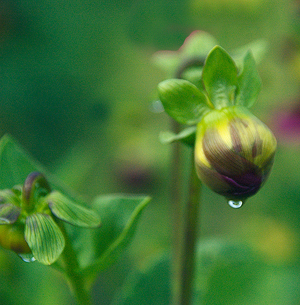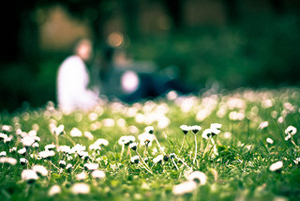My Potted Plants Have Sad Faces

- SUBSCRIBE
- ALREADY SUBSCRIBED?
BECOME A BONJOUR PARIS MEMBER
Gain full access to our collection of over 5,000 articles and bring the City of Light into your life. Just 60 USD per year.
Find out why you should become a member here.
Sign in
Fill in your credentials below.
 Today, it rains where I am, and I think of lines from Proust when the narrator of the seminal “À la Recherche du Temps Perdu” lies bedridden, weak and in ill health, grows aware of the changing Parisian weather.
Today, it rains where I am, and I think of lines from Proust when the narrator of the seminal “À la Recherche du Temps Perdu” lies bedridden, weak and in ill health, grows aware of the changing Parisian weather.
Un petit coup au carreau, comme si quelque chose l’avait heurté, suivi d’une ample chute légère comme de grains de sable qu’on eût laissés tomber d’une fenêtre au-dessus, puis, la chute s’étendant, se réglant, adoptant un rythme, devenant fluide, sonore, musicale, innombrable, universelle: c’était la pluie.
(« Du Côté de chez Swann »)
A small ping onto the tile, as if something had hit it, followed by a more significant but gentle sprinkling, like grains of sand that one allowed to fall from a window above. Then the falling spreads outwards, organizes, takes on its own rhythm, becomes fluid, sonorous, musical, myriad, universal: it was the rain.
Apparently, spring 2013 in Paris has been wet and dreary, which has brought on a level of worry for me, this in addition to other worries with which I occupy myself as I transition from life in the U. S. to a return to France in the fall. Will the weather contribute to my angst? My Parisian friend Géraldine has expounded in many emails over the dreary state of affairs, especially the risk that the harvest may be compromised due to so much water. “La catastrophe, du jamais vue à cette période.” (A catastrophe, never before experienced during this timeframe) and « Mes balconnières font tristes mines. » (My potted plants on the balcony have sad faces).
The downpour continues from my own window, as worries accumulate–the time commitment for this Parisian endeavor I undertake, my ability to sustain it and myself. Can I keep up with yoga as reinforcement? What about relationships left behind?
Slowly, like that arriving patter Proust so eloquently signals, I transition to a recall of the beauty in his phrases, and those of my friend, how the French language contains within each word, inflection, inference, all that the likes of Proust were able to surrender to, allow, and opt for in times of stress.
 I tell myself that I could worry less, that in his fashion as worrier par excellence, Proust developed a system of examination that, while keeping himself at once aligned with the plane of humanity and using sensation to extend beyond it, he indeed was able to derive beauty from all things.
I tell myself that I could worry less, that in his fashion as worrier par excellence, Proust developed a system of examination that, while keeping himself at once aligned with the plane of humanity and using sensation to extend beyond it, he indeed was able to derive beauty from all things.
And in the modulating way he describes his servant Françoise raising the curtains to allow the sunshine into his room, a certain quiet settles itself astride my worries.
« Et tandis que Françoise ôtait les épingles des impostes, détachait les étoffes, tirait les rideaux, le jour d’été qu’elle découvrait semblait aussi mort, aussi immémorial qu’une somptueuse et millénaire momie que notre vieille servante n’eût fait que précautionneusement désemmailloter de tous ses linges, avant de la faire apparaître, embaumée dans sa robe d’or. » (“A l’Ombre des Jeunes Filles en Fleurs”)
And while Françoise removed the pins from their transoms, lifted the material, pulled at the curtains, the summer day that she would bring about seemed just as dead, just as immemorial as a sumptuous and thousand-year old mummy whose wrappings our old servant had but to carefully un-swaddle before it emerged embalmed in a golden dress.
Proust’s tomes are an “Encyclopedia for Worriers” I tell myself. Tomorrow, Paris will be what it will be. Today it rains. Today I am not in Paris. I am here. With the rain.
Kathleen Burke Comstock is a writer who lives in Massachusetts and Paris.
photo 1 by baaker2009 [CC BY 2.0], via Flickr
photo 2 by Who killed Gregory?? [CC BY 2.0], via Flickr
More in french life, rain, Spring in Paris


